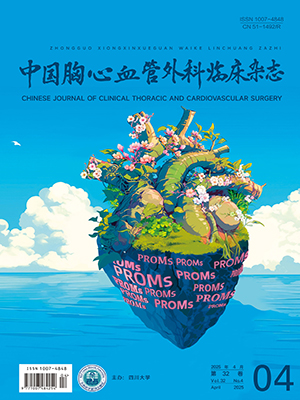Citation: SUN Bao, CHENG Duan, LI Bo, HE Guibao, WANG Haifeng, Ahati, Elias, SHENG Xi, LI Jinpeng. Efficacy analysis of esophageal ultrasound-guided percutaneous femoral artery closure for ventricular septal defect. Chinese Journal of Clinical Thoracic and Cardiovascular Surgery, 2021, 28(12): 1471-1475. doi: 10.7507/1007-4848.202005036 Copy
Copyright © the editorial department of Chinese Journal of Clinical Thoracic and Cardiovascular Surgery of West China Medical Publisher. All rights reserved
-
Previous Article
Clinical efficacy of transthoracic occlusion via a right subaxillary incision and conventional surgery in the treatment of ventricular septal defect: A retrospective cohort study -
Next Article
A preliminary validation of the "lung surface intersegmental constant proportion landmarks" in identifying intersegmental planes during segmentectomy




